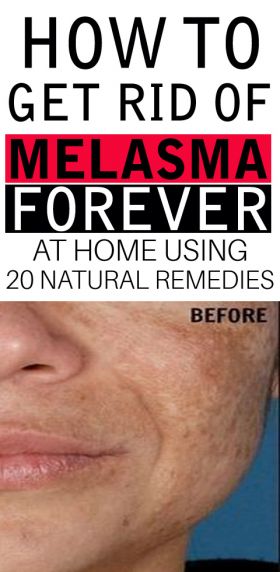It’s the second most common type of vaginal infection, and about 70% of women get infected by candida yeast at-least once in their lifetime. Imbalance in microscopic organism (bacteria and fungi) in vagina is the main reason behind yeast infection. Antibiotics, stress, hot weather and pregnancy trigger this imbalance of bacteria.
Good bacteria restrain yeast growth in vagina. Above mentioned factors decreases the number of bacteria leading to growth of yeast. Though, it’s not associated with any serious health concern, it always accompanied by vigorous itching. Topical application of anti-fungal cream is enough to treat yeast.
If you’re looking for effective and inexpensive home remedies for yeast infection, then yes, there are many such natural remedies that have been used since ancient times.
Home Remedies for Treating Yeast Infection
Though many ancient and religious books documented the effectiveness of this natural remedy for treating yeast like fungus infection, no scientific data is available to prove it. This is why we mentioned unproved in the title. Anyhow, as it’s extracted from nature they barely have any side-effects.
#9 Calendula Treating Candida Yeast

It’s an herb used to soothe minor wounds and for culinary purpose. Americans use it for treating various skin conditions. Collect calendula leaves and add it to your morning tea. Else you can also drop few calendula leaves in the body lotion. Antiseptic agent in calendula fights infection causing germs.
Alternatively you can take calendula capsule. A detailed version of the article is here.
#8 Cranberry Juice and Yeast Infection
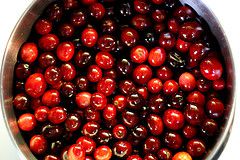
It’s packed with highly nutritional properties like antioxidants, zinc, potassium, vitamin C and calcium. Cranberry juice available in the market contains added sugar, and candida yeast feed on sugar. So stay away from sugar contained foods. Instead try natural cranberry juice.
A detailed post on recipe and nutritional profile is here.
#7 Boric Acid for Yeast Infection
Hydrogen borate or boric acid is added as an ingredient in cosmetic products because of its anti-fungal, antimicrobial and antioxidant properties. A study carried out in 2010 states, those antioxidant properties in boric acid thwarts yeast. Anti-fungal and antimicrobial agents housed in this acid fights with candida yeast and ensures a healthy environment for the good bacteria to grow.
Get boric acid suppository from local drug store and insert in vagina at night, remove it in the morning. Repeat the process regularly. If found any irritation, reach Doctor and avoid consuming it.
A more detailed version is here.
#6 Coconut Oil Treating Yeast Infection
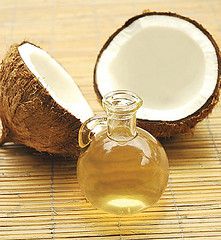
Acids in coconut oil like lauric, capric and caprylic acid contains antiviral, antimicrobial and anti-fungal agents, which kills yeast and increases the number of good bacteria. According to reputed magazine, this acid in coconut oil breaks cell membrane of candida yeast. Also it’s an instant relief from itching.
Blend unrefined coconut oil with essential oil and topically apply over yeast affected area or swish if you’ve thrush.
For a detailed article on coconut oil for yeast infection, click here.
#5 Oil of Oregano
Oregano oil is extracted from wild oregano leaves. Effective properties like antioxidant, anti-inflammatory and antimicrobial are housed in this oil. Either consumes it by dropping few drops in water or make douche. (Mix 1 tbsp of oregano oil, goldenseal root and echinacea in 2 cups of water to make douche.)
You can make oregano oil at home. Recipe included here.
#4 Tea Tree Oil for Yeast Infection
In 2006 a study carried out to test effectiveness of tea tree oil on yeast infection, and they found positive results. Properties in tea tree oil shows anticandidal, which restrains yeast.
Blend tea tree oil with other essential oil. Dip tampon in this mixture and insert in vagina. Alternatively you can drop few tea tree oil and vegetable oil in bath tub. More detailed version of tea tree oil is included here.
#3 Garlic and Vaginal Yeast Infection
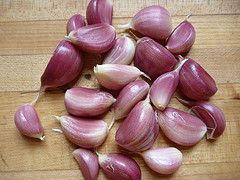
A study carried out in 1991, states that topical application of garlic clove on affected area is one of the effective home remedy to treat yeast infection. This is packed with antiseptic, anti-fungal and antimicrobial properties, which fights candida yeast and reduces infection.
Slice garlic clove and insert it vagina, needle a thread to clove for easy retrieval. More on garlic and candida yeast here.
#2 Yogurt for Yeast Infection
Healthy vagina contains both fungus (small number) and bacteria (large number). Antibiotics and poor diet reduces the number of bacteria which paves the way for yeast (fungus) to grow exponentially triggering itching and redness. Yogurt with live cultures increases the good bacteria, which restrains yeast growth. Probiotics in yogurt prevents recurring candida yeast infection.
You can either consume it or topically apply using tampon. Apply yogurt on tampon and freeze it, then insert it into vagina at night. Repeat the process for good results.
#1 Apple Cider Vinegar and Yeast
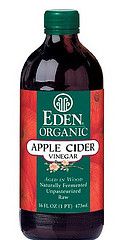
And here comes no.1 home remedy for vaginal yeast infection. Not just for culinary purpose, ACV can treat assorted skin disease, which includes eczema, acne and yeast. Mayoclinic states that antibiotics like apple cider vinegar treats candida yeast. You can either consume it or topically apply.
Acetic acid in ACV lowers pH of vaginal skin, thus making it intolerable for candida yeast. Apart from killing candida yeast, apple cider vinegar enhances a healthy environment for the good bacteria. Know more about apple cider vinegar and how it helps to treat vaginal yeast infection here.
Conclusion
Apart from trying these natural remedies for vaginal yeast infection, you must change your diet. Avoid taking sugar and clean your genitals regularly. Stay away from your partner if you or she/he has vaginal yeast infection.
References:
Brown University
WebMD
Womenshealth.gov


